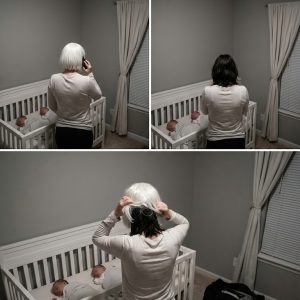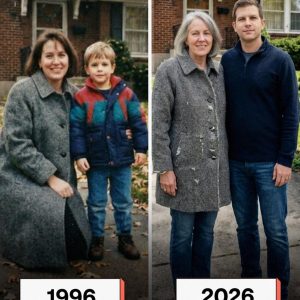At first, he just sat in the sand, laughing as the grains poured through his prosthetic legs. People stared—some with pity, others with curiosity. I braced for the usual whispers. But then, without a word, he tossed off his prosthetics and ran for the ocean.
I panicked. Would he struggle? Instead, he dove in and swam—strong, graceful, fearless. Strangers clapped. The lifeguard froze. I stood stunned, realizing he didn’t see himself as broken. He saw himself as free.
Back at the cabin, I asked why he did it. “Because they slow me down,” he said. “I’m not scared.”
The next day, a woman from the beach—Carla, a swim coach—knocked on our door. She offered to train him. I hesitated, afraid of failure, but he shouted, “Yes!”
Training was hard. He cried. He begged to quit. But he always got back in the water. Slowly, cheers replaced whispers. He started winning races—not just among disabled swimmers, but against fully able-bodied kids.
Then came the backlash. Some parents called it “unfair.” I nearly pulled him out—until I saw a drawing on our fridge: him on a podium, medal in hand. “I can. I will.”
At regionals, he broke the record. But later, Carla collapsed. Cancer. She’d been fighting in silence.
Devastated, he stopped swimming—until I reminded him why Carla believed in him.
At nationals, he swam like never before. He won. And when he held the trophy, he didn’t raise it for himself.
He looked up and said, “This is for Carla.”




